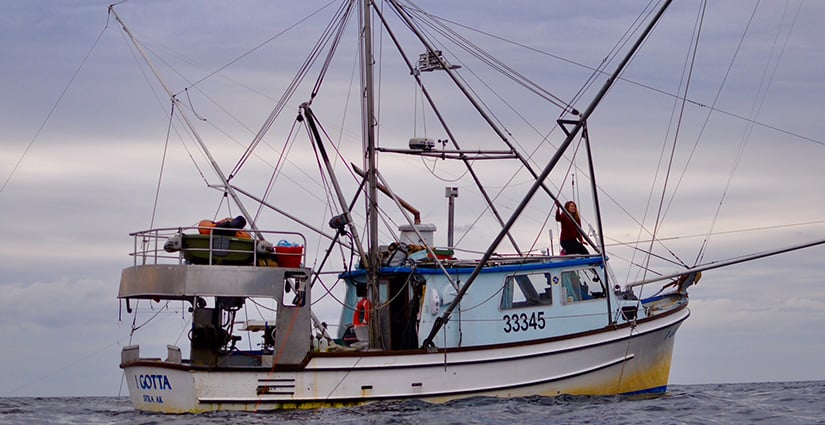Cohort 1: Alaska Longline Fishermen's Association
The Alaska Longline Fishermen’s Association (ALFA) developed a model to estimate energy savings for a converted hybrid electric propulsion fishing vessel with technical assistance from the Energy Technology Innovation Partnership Project.

Project Summary
 Population Size
Population Size
197 members
 Technology Focus
Technology Focus
Fishing vessel hybridization
 Lead Lab
Lead Lab
National Laboratory of the Rockies
 Regional Partner
Regional Partner
Fishermen in Alaska depend on diesel fuel to power their vessels, and diesel is one of the largest operating costs for fishers. Burning diesel also contributes to atmospheric shifts, which reduces fish catch rates. For these reasons, the Alaska Longline Fishermen's Association applied to the first Energy Transitions Initiative Partnership Project cohort for assistance to understand how to reduce carbon emissions from fishing vessels via hybridization (both diesel and electric) and potentially full electrification.
Sandia National Laboratories (Sandia) and the National Laboratory of the Rockies (NLR) worked with ALFA to assess the feasibility of electrifying fishing vessels. NLR created a modeling framework to estimate energy savings for one fishing vessel (the I Gotta) that will be converted to hybrid electric power, considering two levels of hybridization. The model used Markov Chain and random walk modeling to simulate longer voyages and other duty cycles to expand the simulation results beyond one boat's usage profile. Sandia conducted an alternative fuels review to provide information about additional options for electrifying or refueling the ALFA fleet without any diesel use.
Project Outcomes
A draft report concluded that the I Gotta could reduce diesel consumption by 60% on its typical 1-day voyage with a hybrid engine. Other vessels on a 3-day voyage could save 25%–61%, depending on the hybrid engine diesel/electricity ratio. Longer and more transit-intense voyages could expect 15%–25% fuel savings.
Key Takeaways
The space in fishing vessels is limited, which makes alternative fuel retrofits difficult. Timing the project to avoid disruptions to the fishing season is another challenge.
Opportunities and Impacts
ALFA received funding to hybridize the I Gotta via the U.S. Department of Energy's Fiscal Year 2022 Vehicle Technologies Office Funding Opportunity Announcement to advance energy projects in the transportation sector.
ALFA was also among a group of partners that received $1 million from the Vehicle Technologies Office in 2024 for a project to engage and connect stakeholders across marine sectors serving dispersed communities in the coastal Pacific Northwest.
Additional Information
Alaska Longline Fishermen's Association Receives Seafood Industry Climate Award, ALFA Press Release (2022)
Alaska Longline Fishermen's Association Receives Seafood Industry Climate Award, Alaska Sporting Journal (2022)
Battery-Electric Fishing Vessel Marks a Sea Change for Small Commercial Fishers, NLR News (2023)
Funding Selections: Fiscal Year 2024 Technology Integration Funding Program, U.S. Department of Energy (2024)
University of Alaska, National Labs Help Alaskans Address Energy Needs, University of Alaska Fairbanks News Story (2021)
Share
Last Updated Dec. 7, 2025
